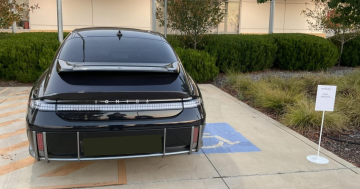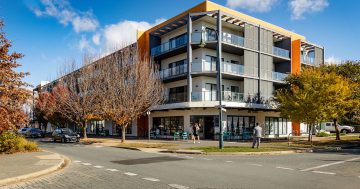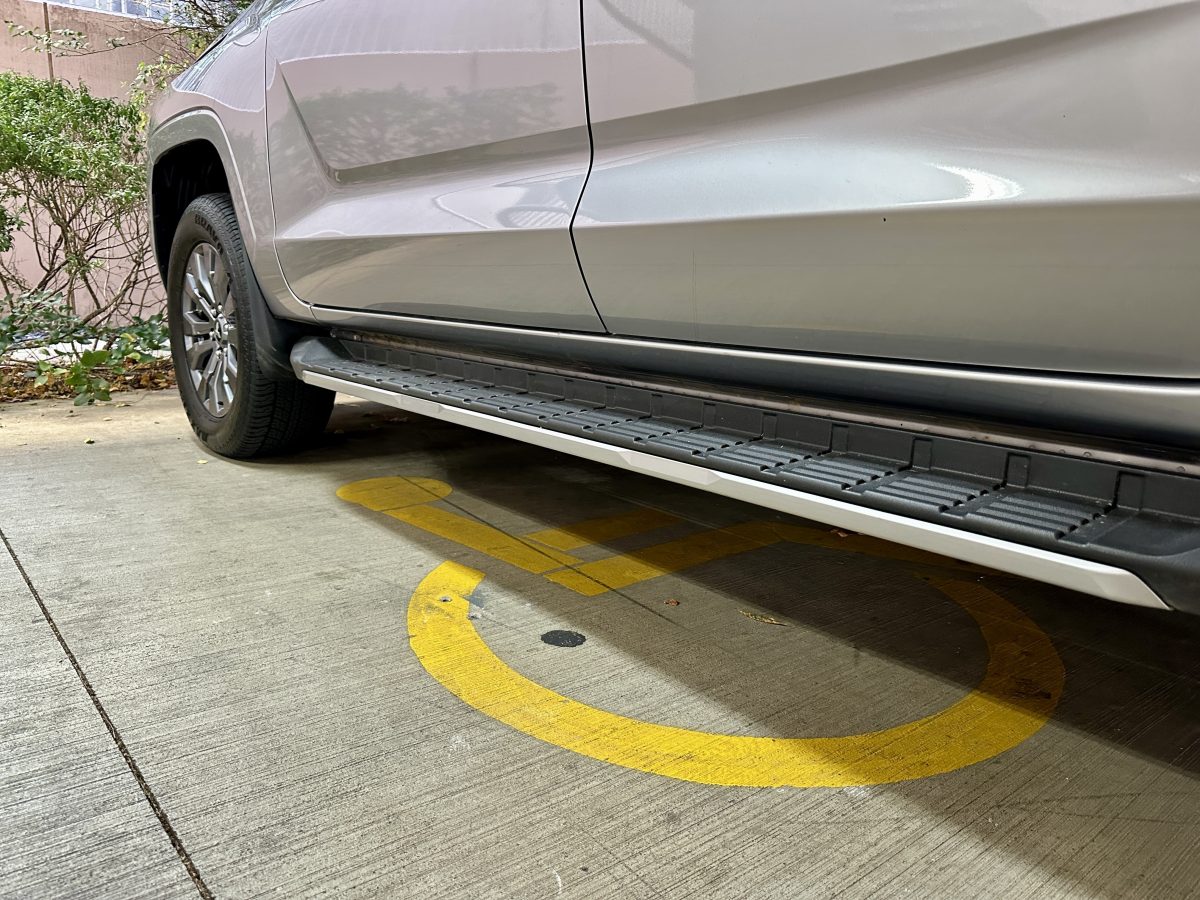
Disabled permit on the dashboard? Probably not. Photo: James Coleman.
ACT Chief Minister Andrew Barr was recently called out for “shameful behaviour” after photos of his car emerged on the ‘Australian Disability Parking Wall of Shame’ Facebook page, clearly parked in a disabled parking space outside a private event in Canberra.
Mr Barr subsequently apologised, but pointed out the space had been allocated to him by the event’s organisers and he was simply “following the instructions”.
Normally if you’re caught parking in a disabled parking spot without a valid permit, you’re looking at a $600 fine. Not this time.
But it turns out there are plenty of other disabled parking spaces throughout Canberra where a permit is an optional extra. Nearly every apartment complex, in fact.
But before you starting parking willy-nilly in disabled parking spaces and then writing us an angry letter when the bill inevitably arrives, let’s be clear: this exception does not extend to those in visitor parking spaces (or any public car park, for that matter).
Monique Bosma is a team leader for Canberra strata management company, Civium, and explains that under local planning laws, developers must include a certain number of “accessible” units within a residential dwelling complex, with an accessible parking space to match.
But there’s no way of ensuring the unit’s buyer or renter actually needs it.
“In some instances, individual disabled parking spaces are assigned to specific units and are purchased by the unit owner during the settlement process,” she says.
“Owners do not need to provide evidence of requiring a disabled parking space to purchase one.”
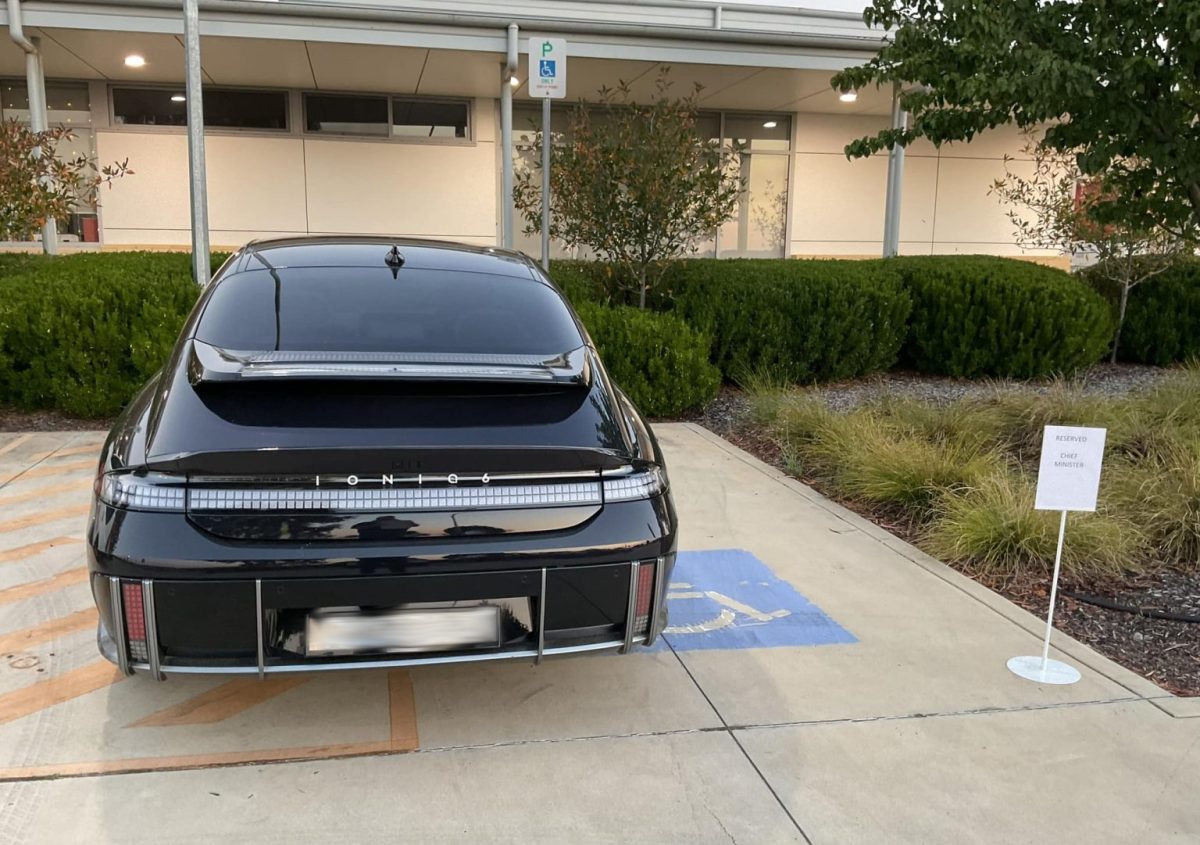
Chief Minister Andrew Barr was called out for parking in a disabled bay (which had been reserved for him) at a private event in Canberra. Photo: Facebook.
In other words, an owner can be assigned a car parking space and even if it has the disabled symbol painted on it and the owner lacks a disability permit, it’s still theirs and they can use it.
Under the previous multi-unit housing code, about one in 10 units must be designed as “accessible” when the total number is 40 or more. These must include features such as wider doors and corridors and be within certain distances from the communal rubbish bins.
An overhaul of planning laws last year has led to requirements that aren’t quite as prescriptive – there is no longer any magic set number the planning authority is looking for – but the outcome is expected to remain broadly the same.
Ms Bosma says the numbers of privately owned disabled parking spaces vary “greatly” across the local developments Civium manages.
“In one complex within our portfolio with over 160 lots, 14 units have disabled parking spaces,” she says.
“These spaces are next to areas of common property marked as clearance zones to facilitate access for individuals getting in and out of their vehicles.”
Some residents make verbal agreements where they swap their accessible parking space for another resident’s conventional space, but nothing official can transpire because of the substantial legal changes involved.
“I have encountered situations where an owner with a disability required a disabled parking space for their unit but did not have one allocated to them,” Ms Bosma says.
“This can be challenging, as another unit with a disabled parking space is not required to give up their space. A viable option … is for the owner to request an informal agreement with another owner to swap their parking spaces.”
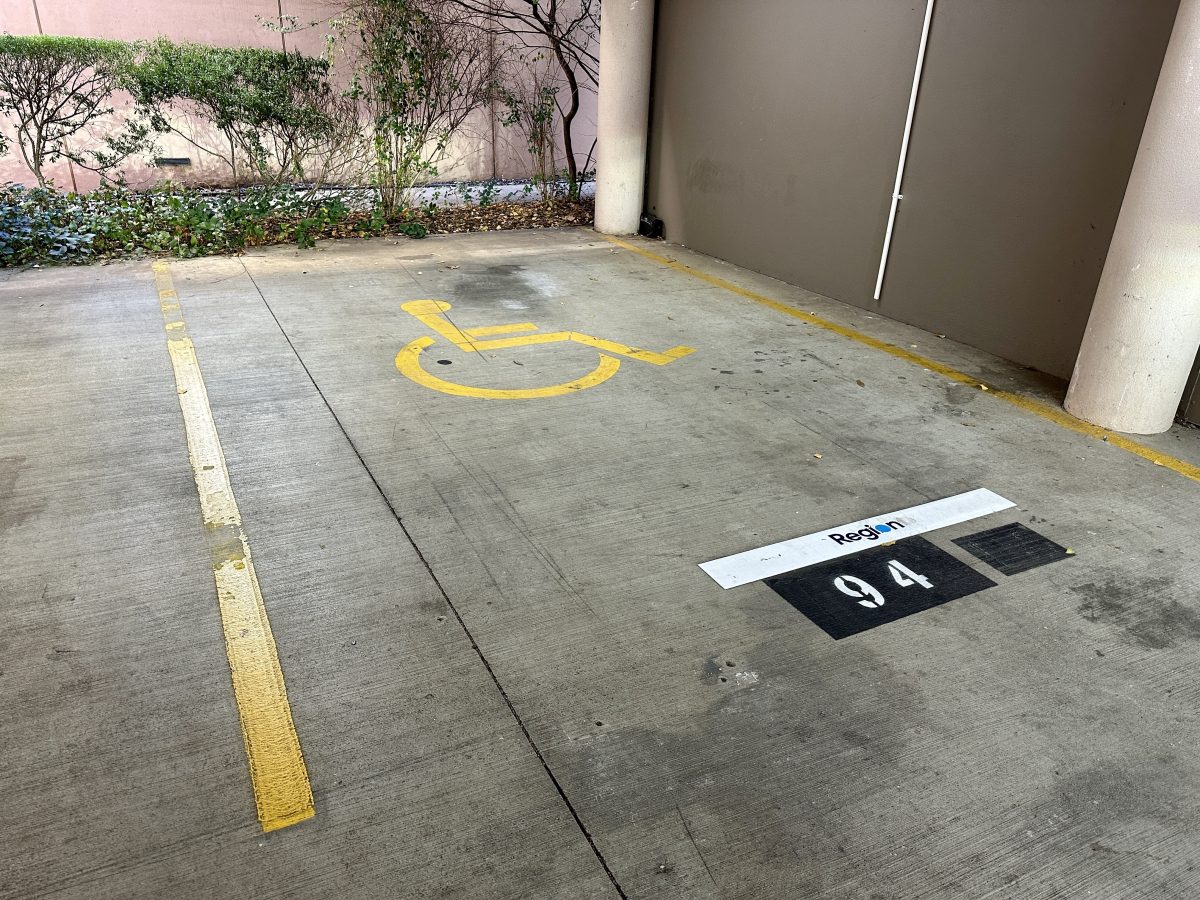
A clearly allocated disabled parking space. As long as it’s yours, it’s no crime to park here without a permit. Photo: James Coleman.
This isn’t policed, because not only do you own it, apartment complexes are also private property, and out from under the jurisdiction of parking enforcement officers.
However, Ms Bosma says there’s a common misconception owners can also take over the clearance zone often found next to these disabled parking spaces.
“The clearance zone next to these spaces, which is common property, is managed like all other common property areas,” she says.
“Unit owners cannot store items or use this area for personal purposes; it exists solely to facilitate access for individuals getting in and out of their vehicles.”
These breaches can be reported to the owners corporation, who are empowered to “address and mitigate this behaviour”.













